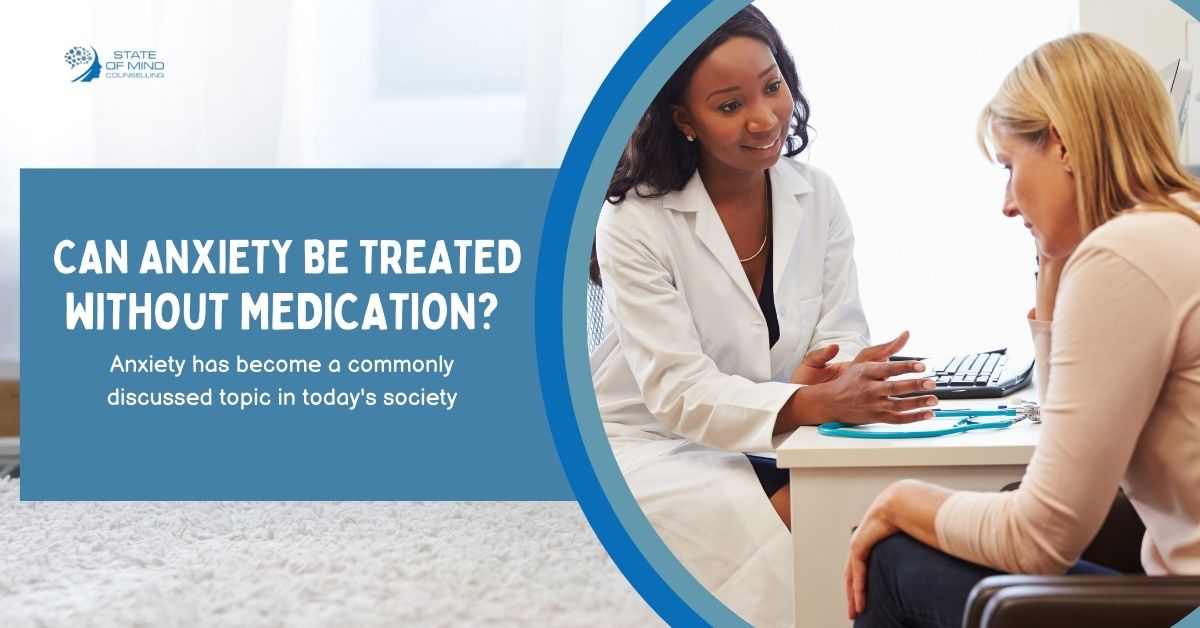Anxiety has become a commonly discussed topic in today’s society, but what is anxiety, and can it be treated without medication? Understanding the emotional and physical impact of anxiety and how to manage it effectively can help lead to a more balanced and fulfilling life.
What is Anxiety?
Anxiety is an emotion that has been with humanity since the beginning of time. Rooted in our evolutionary history, anxiety developed as a survival mechanism, alerting us to dangers and uncertainties. While the expression of anxiety may have evolved over time, its core function remains the same: it serves to protect us, both mentally and physically, from perceived threats. Anxiety can serve as a warning, motivating us to act or prepare for potential danger.
However, the increasing use of the term “anxiety” may also be a result of modern society’s growing challenges and uncertainties, such as natural disasters, social issues, and personal concerns. The question arises: is anxiety now more prevalent because the word has become widely used, or is it because more people are experiencing anxiety due to societal pressures?
Causes of Anxiety
Anxiety can stem from a wide range of environmental and internal factors. Environmental triggers may include events like pandemics, natural disasters, or social uncertainty. On the other hand, internal causes might involve personal concerns about the future, insecurities, past traumas, or fears related to failure, rejection, or abandonment.
While these factors can create anxiety, the key distinction between a normal response to a stressful situation and an anxiety disorder lies in the frequency and intensity of the anxiety. For some, anxiety may disappear once the triggering situation passes; however, for others, it can take over their lives and persist even without a clear cause.
How to Deal with Anxiety?
While anxiety is a natural emotional response, when it becomes overwhelming, it can disrupt one’s life. Fortunately, there are numerous ways to cope with and manage anxiety, many of which do not require medication.
1. Physical Activity
Exercise has long been known to help improve mood and reduce anxiety. Physical activity triggers the release of endorphins, the body’s natural mood enhancers, and helps reduce stress hormones. Taking a walk or engaging in yoga can help calm anxious thoughts.
2. Share with Trusted People
Anxiety often worsens when carried alone. Talking about your feelings with friends, family, or trusted individuals can provide emotional support, new perspectives, and practical coping strategies. Verbalizing your anxiety also lightens the mental burden.
3. Create Concrete Plans
When faced with an anxiety-inducing situation, taking small steps toward a solution can help reduce uncertainty. For example, breaking down tasks into manageable chunks—such as preparing for an exam or meeting deadlines—can relieve the tension that accompanies worry.
4. Limit Caffeine
Caffeine is a stimulant that can increase anxiety by raising heart rate and triggering jitteriness. Limiting caffeine intake can help create a calmer and more stable mindset.
5. Healthy Nutrition
A balanced diet is crucial for mental and physical health. Regular meals with nutrient-rich foods can strengthen the body’s ability to manage stress and anxiety.
6. Self-care
Self-care isn’t just about physical well-being; it includes mental and emotional care as well. Taking time to relax, meditate, and get enough sleep are all ways to support emotional health and reduce anxiety.
7. Establish Routines
Anxiety often stems from uncertainty. Creating a predictable daily routine can bring a sense of control and reduce feelings of unease. Regular routines help calm the mind and foster a sense of security.
8. Engage in Creative Activities
Creative outlets like painting, music, or crafts can help reduce anxiety by providing an emotional release and allowing the mind to focus on something positive.
9. Reduce Screen Time
Excessive use of social media or exposure to screens can increase mental fatigue and trigger anxiety. Limiting time spent on screens can help prevent your mind from being overstimulated and provide moments of calm.
Is Anxiety Disorder Treatable?
While it’s normal to feel anxious from time to time, when anxiety becomes persistent and overwhelming, it can develop into an anxiety disorder. Symptoms of anxiety disorder include constant worry, difficulty functioning in daily life, physical symptoms like tremors or heart palpitations, and avoidance behaviors.
If anxiety is interfering with your quality of life, it may be time to seek professional help. With the right support, it is possible to manage anxiety without resorting to medication. Psychotherapy, such as Cognitive Behavioral Therapy (CBT), helps individuals identify and challenge the thought patterns contributing to their anxiety. For some, medication may be necessary as part of a holistic treatment plan.
At State of Mind Counselling, we offer compassionate and tailored solutions to help you manage your anxiety. Our team of experienced professionals works with you to build coping strategies, explore underlying causes, and find healthy ways to navigate life’s uncertainties.If you’re struggling with anxiety and need treatment for anxiety, don’t hesitate to consult us today. We’re here to help you find peace and balance in your life.

